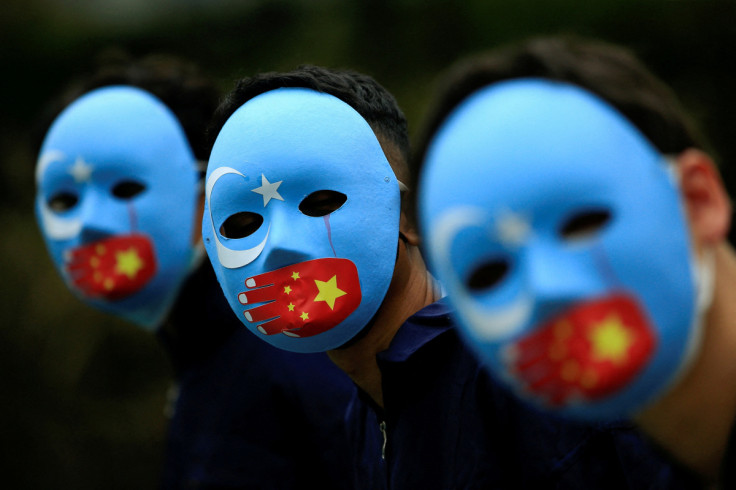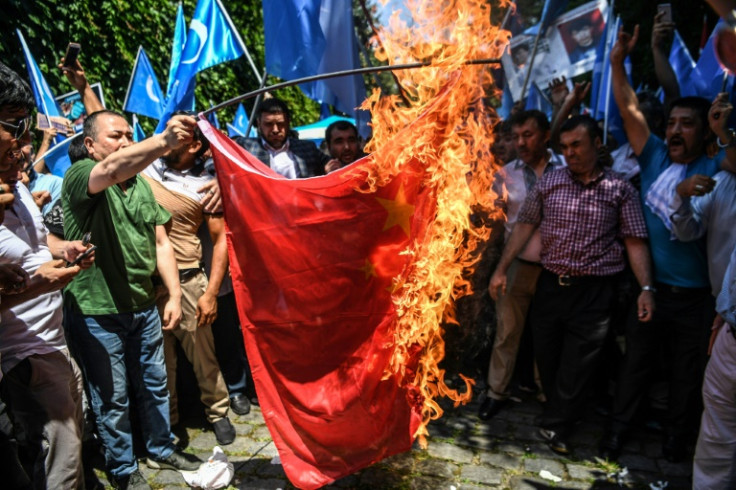China Pays Citizens To Marry Muslims In Effort To Wipe Out Uyghurs: Report

KEY POINTS
- The arranged marriages are part of China's "National Unity, One Family" campaign
- Uyghur women who refuse the arranged marriage were threatened to be sent to internment camps
- China has previously been accused of detaining and torturing Uyghurs in internment camps
The Chinese government is reportedly paying its citizens to marry Muslims in an attempt to wipe out the Uyghur population living in the country's north-western region, a recent report showed.
Local authorities in the Xinjiang region have allegedly been blackmailing and bribing Chinese citizens to enter into arranged marriages with Uyghur women as part of the "National Unity, One Family" campaign. Some of the incentives being offered to the interethnic couples include housing and education subsidies, jobs and medical care, according to a report published by the Washington-based nonprofit Uyghur Human Rights Project (UHRP), citing official policy documents, social media posts and interviews with Uyghurs.
In the Kalasa village in Aksu Prefecture, for example, two mixed Uyghur-Han couples were given 40,000 yuan ($5,588) to marry. The report also noted that local officials threatened to send Uyghur women who refuse an arranged marriage to internment camps.
"The threat of detention ... suggests that some measure of coercion, however indirect, is likely present in many 'new-era' Uyghur-Han interethnic marriages," the UHRP report said. "An Uyghur woman is simply not in a position to reject a Han man who expresses interest in marrying her."
China has previously been accused of detaining more than one million Uyghurs in internment camps, locally called "re-education camps," where detainees are believed to be interrogated and tortured. Some of the torture methods allegedly used by officers in the camps include stepping on the faces of detainees, hanging Uyghurs from the ceiling, waterboarding, sexual violence and electrocution.
In September, Michelle Bachelet, the head of the Office of the United Nations High Commissioner for Human Rights (OHCHR), delivered a 45-page report that contained firsthand allegations of human rights abuses against Uyghurs, Kazakh and Kyrgyz ethnicities in the Xinjiang province.
Among the 40 people who were interviewed, 26 had either been detained or worked in facilities in Xinjiang. Some of the accounts said they were beaten with batons, waterboarded and deprived of sleep and food while being detained. Others said they were not allowed to speak their own language and were instead forced to sing patriotic songs.
In response to the report, China published a 131-page document where they claimed that the OHCHR investigation "distorts" China's laws and policies. China added that ethnic groups living in Xinjiang "are living a happy life and peace and contentment," as reported by CNN.

© Copyright IBTimes 2025. All rights reserved.





















